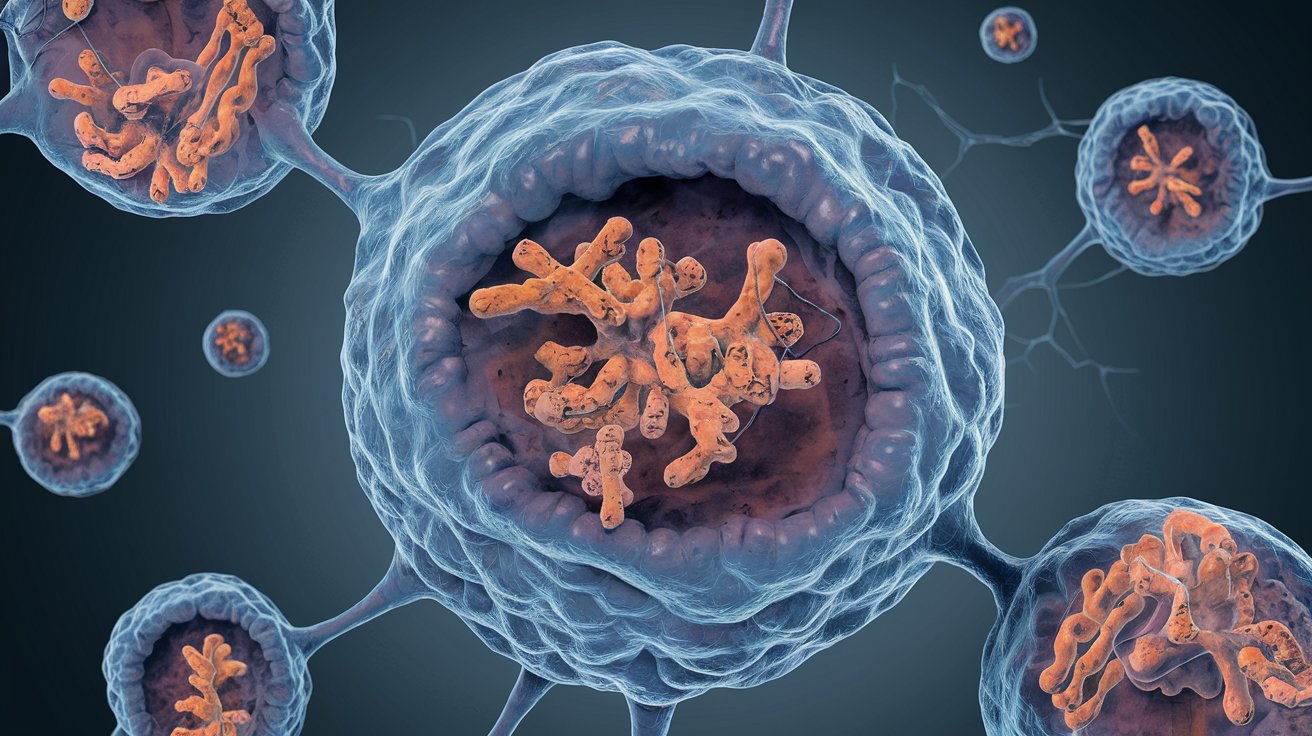
Lysosomal Alpha-D-Mannosidase Deficiency is a rare genetic disorder that affects the body's ability to break down certain complex sugars. This condition, also known as alpha-mannosidosis, results from mutations in the MAN2B1 gene. These mutations lead to a deficiency in the enzyme alpha-mannosidase, causing harmful substances to accumulate in cells. Symptoms can vary widely but often include developmental delays, skeletal abnormalities, and immune system issues. Understanding this disorder is crucial for early diagnosis and management. In this blog post, we'll explore 25 essential facts about lysosomal alpha-D-mannosidase deficiency, shedding light on its causes, symptoms, and potential treatments.
Key Takeaways:
- Lysosomal Alpha-D-Mannosidase Deficiency, or Alpha-Mannosidosis, is a rare genetic disorder causing developmental delays, skeletal issues, and hearing loss. Treatment options include enzyme replacement therapy and bone marrow transplants.
- Ongoing research on Alpha-Mannosidosis aims to develop new treatments, including gene therapy and clinical trials. Support groups and specialized clinics provide resources for affected individuals and their families.
Understanding Lysosomal Alpha-D-Mannosidase Deficiency
Lysosomal Alpha-D-Mannosidase Deficiency, also known as Alpha-Mannosidosis, is a rare genetic disorder. This condition affects the body's ability to break down certain complex sugars. Let's dive into some fascinating facts about this condition.
-
Genetic Origin: Alpha-Mannosidosis is caused by mutations in the MAN2B1 gene. This gene provides instructions for making the enzyme alpha-mannosidase.
-
Enzyme Deficiency: The deficiency of alpha-mannosidase leads to the accumulation of mannose-rich oligosaccharides in cells, causing various symptoms.
-
Inheritance Pattern: This disorder follows an autosomal recessive inheritance pattern. Both parents must carry a copy of the mutated gene for a child to be affected.
-
Prevalence: Alpha-Mannosidosis is extremely rare, affecting approximately 1 in 500,000 to 1,000,000 individuals worldwide.
-
Diagnosis: Diagnosis often involves enzyme assays to measure alpha-mannosidase activity in blood or skin cells.
Symptoms and Manifestations
The symptoms of Alpha-Mannosidosis can vary widely among individuals. Here are some key manifestations of this condition.
-
Developmental Delay: Many affected individuals experience developmental delays, particularly in speech and motor skills.
-
Skeletal Abnormalities: Skeletal issues such as scoliosis, joint stiffness, and bone deformities are common.
-
Hearing Loss: Progressive hearing loss is a frequent symptom, often starting in childhood.
-
Immune System Issues: Individuals with Alpha-Mannosidosis may have a weakened immune system, making them more susceptible to infections.
-
Facial Features: Distinctive facial features, including a prominent forehead, flattened nasal bridge, and widely spaced teeth, are often observed.
Treatment and Management
While there is no cure for Alpha-Mannosidosis, several treatments can help manage the symptoms and improve quality of life.
-
Enzyme Replacement Therapy: This treatment involves replacing the deficient enzyme with a synthetic version to reduce symptoms.
-
Bone Marrow Transplant: In some cases, a bone marrow transplant can help restore normal enzyme levels and improve symptoms.
-
Physical Therapy: Regular physical therapy can help manage joint stiffness and improve mobility.
-
Hearing Aids: Hearing aids or cochlear implants can assist those with hearing loss.
-
Antibiotics: Frequent use of antibiotics may be necessary to manage recurrent infections due to a weakened immune system.
Research and Future Directions
Ongoing research aims to better understand Alpha-Mannosidosis and develop new treatments. Here are some exciting developments in this field.
-
Gene Therapy: Researchers are exploring gene therapy as a potential treatment to correct the underlying genetic defect.
-
Clinical Trials: Several clinical trials are underway to test new drugs and therapies for Alpha-Mannosidosis.
-
Patient Registries: International patient registries are being established to collect data and improve understanding of the disease.
-
Animal Models: Scientists are using animal models to study the disease and test potential treatments.
-
Biomarkers: Identifying biomarkers can help with early diagnosis and monitoring the progression of the disease.
Living with Alpha-Mannosidosis
Living with Alpha-Mannosidosis presents unique challenges, but support and resources are available to help affected individuals and their families.
-
Support Groups: Joining support groups can provide emotional support and practical advice for managing the condition.
-
Educational Resources: Access to educational resources can help families understand the disease and navigate treatment options.
-
Advocacy Organizations: Organizations dedicated to rare diseases advocate for research funding and support for affected individuals.
-
Specialized Clinics: Specialized clinics offer comprehensive care and treatment plans tailored to the needs of individuals with Alpha-Mannosidosis.
-
Awareness Campaigns: Raising awareness about Alpha-Mannosidosis can help increase understanding and support for those affected by this rare condition.
Final Thoughts on Lysosomal Alpha-D-Mannosidase Deficiency
Lysosomal Alpha-D-Mannosidase Deficiency, a rare genetic disorder, affects the body's ability to break down certain sugars. This leads to a buildup of complex sugars in cells, causing various symptoms like developmental delays, skeletal abnormalities, and immune system issues. Early diagnosis and treatment can improve quality of life, though there's no cure yet. Research continues to explore new therapies and better understand the condition. Awareness and support for affected individuals and families are crucial. Understanding this disorder helps in advocating for better healthcare and resources. Stay informed and support ongoing research efforts to make a difference in the lives of those affected by Lysosomal Alpha-D-Mannosidase Deficiency.
Frequently Asked Questions
Was this page helpful?
Our commitment to delivering trustworthy and engaging content is at the heart of what we do. Each fact on our site is contributed by real users like you, bringing a wealth of diverse insights and information. To ensure the highest standards of accuracy and reliability, our dedicated editors meticulously review each submission. This process guarantees that the facts we share are not only fascinating but also credible. Trust in our commitment to quality and authenticity as you explore and learn with us.
